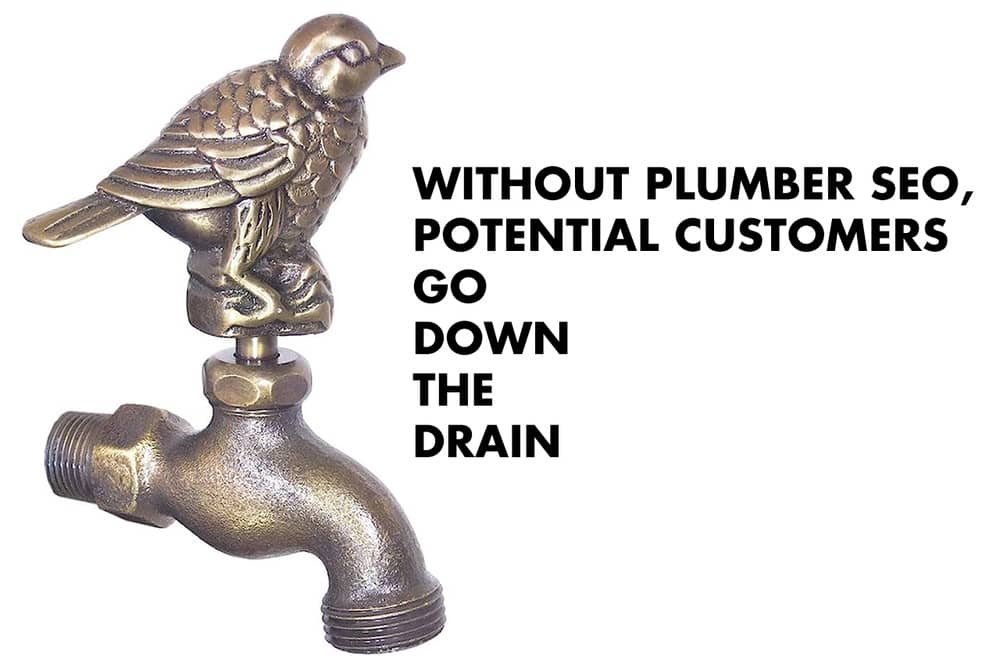Plumber SEO Opens Your Faucet for Search Traffic
Plumber SEO involves implementing various technical and content strategies to naturally increase traffic to your plumbing website and improve your online visibility. By optimizing your website's functionality, improving its ranking on the search engine results page (SERP), and targeting relevant SEO keywords, you can make your plumbing services more visible and accessible to potential customers. SEO also aims to enhance the user experience of your website, making it more user-friendly and engaging.
To achieve a realistic return on investment (ROI) from your plumber SEO campaign, it is important to consider the size of your business and your ambitions. There’s quite a bit of difference between a company that needs HVAC SEO for big commercial buildings and HVAC SEO for homeowners. Your website should showcase your expertise and value as a plumbing professional, just like a dentist or law firm SEO, helping potential customers understand the ROI they can expect when hiring your services.
Our SEO company uses key performance indicators (KPIs) to assess the effectiveness of your SEO campaign — like the number of new customers, organic traffic from the SERP, keyword rankings, visit duration, and pages per session. These metrics provide insights into the success of your SEO efforts and the performance of your website. KPIs differ from industry to industry. B2B SEO, because it often focuses on small audiences with high conversion rates, is different from ecommerce SEO, which targets larger-volume keywords for bigger pieces of the SEO pie among competitors.
A local SEO campaign focuses on tailoring keywords to your specific geographical area. By incorporating your city, state, and local listings into your content, you can attract local viewers and improve your visibility when users search for plumbers in your location. On the other hand, national marketing targets more generalized keywords relevant to a national audience.
In summary, plumber SEO involves optimizing your website to improve functionality, increase online visibility, and attract more customers. By implementing effective SEO strategies and monitoring key performance indicators, you can drive organic traffic, improve your search engine rankings, and grow your plumbing business.
Claiming your Google Business Profile is the first step in local SEO. This free listing appears in Google search results and maps, providing information about your business, such as contact details, working hours, and customer reviews. Similarly, getting listed on online directories helps drive traffic to your website and increase visibility. It is important to maintain NAP consistency (Name, Address, and Phone Number) across all listings and ensure accurate information for credibility.
Customer reviews play a crucial role in SEO. Positive reviews improve your ranking on local search results, making your business stand out. Encouraging customers to leave reviews and leveraging automation tools like Jobber’s NiceJob can help generate more positive feedback.
Optimizing website content is another key aspect of SEO. Performing keyword research and incorporating relevant keywords in your website and blog content can improve search rankings and attract potential customers. Creating individual web pages for specific services and including service locations are effective strategies.
Showing expertise through an about page, starting a plumbing blog, and optimizing titles, descriptions, URLs, and headers are additional ways to optimize website content for SEO. Page speed optimization is crucial for user experience, as slow-loading websites can deter potential customers. Aim for a load time of under three seconds, and utilize tools like Google PageSpeed Insights to measure and improve page speed.
Investing in professional SEO services can be beneficial for plumbing businesses, especially considering the competitiveness of the industry. Companies like Blue Corona, Plumbing & HVAC SEO, Plumbing Webmasters, and Thrive offer specialized SEO services for plumbers.
To track SEO performance, tools like Google Search Console and Google Analytics are invaluable. Google Search Console monitors how search engines rank your website and provides insights into keywords, rankings, and website errors. Google Analytics tracks visitor behavior, traffic sources, and other metrics to assess the effectiveness of your SEO efforts.
It's important to remember that SEO is a long-term strategy, and results may not be immediate. However, when combined with other marketing strategies, SEO is a powerful tool to increase online visibility, attract more customers, and generate plumbing leads.

